Multiple Choice
The linear programming problem has an unusual characteristic.Select a graph of the solution region for the problem and describe the unusual characteristic.Find the maximum value of the objective function (if possible) and where it occurs.
Z = 3x + 4y
Constraints:
X ≥ 0
Y ≥ 0
X + y ≤1
3x + y ≤ 6
A) 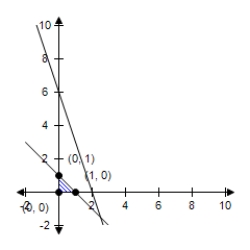 The constraint 3x + y ≤ 6 is extraneous.Maximum at (1,1) : 7
The constraint 3x + y ≤ 6 is extraneous.Maximum at (1,1) : 7
B) 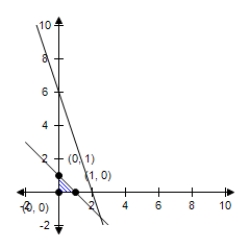 The constraint 3x + y ≤ 6 is extraneous.Maximum at (1,0) : 3
The constraint 3x + y ≤ 6 is extraneous.Maximum at (1,0) : 3
C) 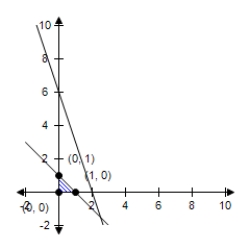 The constraint 3x + y ≤ 6 is extraneous.Maximum at (0,1) : 4
The constraint 3x + y ≤ 6 is extraneous.Maximum at (0,1) : 4
D) 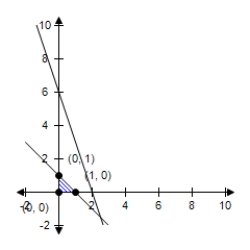 The constraint 3x + y ≤ 6 is extraneous.Maximum at (0,0) : 0
The constraint 3x + y ≤ 6 is extraneous.Maximum at (0,0) : 0
E) 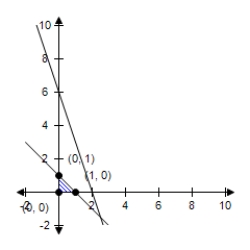 The constraint 3x + y ≤ 6 is extraneous.No maximum.
The constraint 3x + y ≤ 6 is extraneous.No maximum.
Correct Answer:

Verified
Correct Answer:
Verified
Q1: Find the maximum value of the
Q2: Find the minimum value of the objective
Q3: Select the region determined by the constraints.Then
Q4: Find the minimum value of the objective
Q6: According to automobile association of a country,on
Q7: Select the region determined by the
Q8: An accounting firm has 780 hours of
Q9: An investor has $450,000 to invest in
Q10: Find the maximum value of the objective
Q11: Find the maximum value of the objective